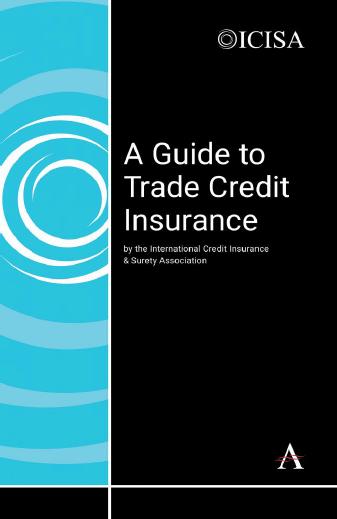
5 minute read
Blockchain – fail fast and scale
Jags Rao
Advertisement
Jags Rao coleads the DLT (Distributed Ledger Technology) practice at Swiss Re and is a recognized thought leader in the insurance industry on blockchain. He introduced blockchain to Swiss Re in 2015, spearheaded insurance industry’s first prototype on blockchain and since then driving Swiss Re’s strategic agenda for a successful business change using DLT. He was the cofounder and instrumental in the launch of B3i, Blockchain Insurance Industry Initiative. Jags coauthored a technical paper on privacy on blockchain networks and significantly contributing to Swiss Re’s innovation leadership position. He chairs the Blockchain Working Group, to share knowhow and raise awareness on the impact of DLT to Insurance Business. In 2016 Jags founded Swiss Re Incubator (now called CrowdPassion) platform to drive grass root innovation at Swiss Re in a fast, flexible and agile manner. Jags also contributed to the launch of Swiss Re’s first ever startup accelerator program. Jags has over 22 years of experience in solution consulting, innovation management and sales leadership with a blend of technology, business and entrepreneurial experience. He is raised in India, resident of Switzerland since 2001, has lived in the USA and briefly in Japan. slow to adapt to change will find it hard to survive in the new order.” He explains that there are already some promising blockchain initiatives out there which are relevant for the trade credit insurance and surety industry. “TradeLens, a DLT cooperative for digitizing the global trade supply chain, presents huge opportunity for the Trade Credit and Surety business to participate in the platform and benefit from the standardized work flow. The data set generated by TradeLens is valuable for Banks, Insurance companies and other service providers to provide better quality products and services. We.Trade is another consortium that is addressing the issues with today’s Trade Finance. Trade credit & surety industry should not miss out on these and other opportunities to learn and benefit from these rapidly evolving platforms of the future.”
When asked to give advice to ICISA members, Jags likes to emphasize that it is of key importance to get familiar with the blockchain technology rather sooner than later and try to learn from each other. “Get your hands dirty! Start somewhere. Remain open. Fail Fast. Pivot your model. Do not reinvent the wheels, leverage on the learnings from other members. Don’t try to understand how blockchain works, instead focus on for what business problem blockchain is a winning model. Only a select group of incumbents adopting DLT/blockchain for a successful business change will gain competitive edge. So Think ahead, Think Next and act NOW!”
Interview with Patrice Luscan, Marketing & Innovation Director at Coface
New President, new roadmap
During the General and Associated Meetings in Stockholm last June, the ICISA membership elected Patrice Luscan as their 41st President. Though Patrice had been representing Coface in the Management Committee of ICISA since 2015, he was at first hesitant about accepting the nomination for the role as President of the association. Here he shares his motivation for having – happily – accepted the new role and sets out his main priorities for the coming years.
When his nomination to become the 41st President of ICISA was first broached with Patrice, he was not convinced he should accept: “To be honest it took me some time to come to that decision. I felt relatively unprepared for the job, although I had been on the MC for a few years. Taking on responsibility within an industry association is not a natural career step, and there’s no development plan to get you there… It’s true, too, that it raises questions of positioning”, Patrice notes. He continues: “Beyond this initial prudent stance, I think I needed to get a better idea of the contribution I could make to ICISA before I signed up. So I reflected on this, and when my ideas started to take shape, I was naturally more eager to make it happen. Then I was really motivated to take the role.”
The value of ICISA
When asked about the value that ICISA as an association delivers to its members, Patrice notes two main areas. He notes that, first and foremost, ICISA is there to represent the interests of its members: “There’s a wide range of instances where that can happen, with two limitations: first, there must be an alignment of interests between members, and secondly there cannot be any risk incurred in connection with antitrust regulations.
Patrice considers advocacy towards authorities and regulators as a top priority for members in a context of an increasingly demanding compliance framework. “Advocacy is particularly important for members acting in several leading regulatory environments. Defending the interests of members may also entail speaking out in the media when the industry risks getting ‘a bad press’ for its role in the context of a severe economic crisis. By definition this role is not always visible, but we do have a sleeping group of Communication Managers that could be activated any time to take up the challenge,” Patrice notes. He furthermore emphasizes that there is an implicit expectation from an association to promote its industry and products: “Public promotion is very important for an industry like ours with modest penetration rates. At the same time, it’s difficult to address this need with, for example, highimpact campaigns, given both available resources and ICISA’s very broad geographical scope.”
The second main area where Patrice sees ICISA delivering value to its members is by organizing industrywide exchange of information and experience: “This covers everything from the simple collecting and sharing of figures, through to discussion of the most critical and technical issues facing the industry behind closed doors in the committees. The substance of these discussions and the benefit members get out of them is essentially what these same members bring to the table. I think this is where the value delivered by ICISA to its members is not entirely the right question to ask. ICISA’s value essentially comes from its members’ common efforts, and the Secretariat is probably more of a facilitator than a significant contributor.”
Patrice is happy to mention some recent achievements that underline ICISA’s added value as a facilitator for these ‘common efforts’: “I think the position letter sent recently by a member of the European Parliament to the Commission about the prospective – and unfavorable – recalibration of Solvency 2 capital requirements in the standard formula is an achievement. Though it isn’t a result in itself, it’s proof that our organization for advocacy, around the Regulatory subcommittee and our advisor in Brussels, is becoming more efficient.”
Priorities
Patrice emphasizes that he sees advocacy as a key priority: “The advocacy agenda is not entirely known at the start of a given presidency, of course. But we know for a fact that the regulatory frameworks of Solvency 2 and Basle 3 and their eventual evolution will have






